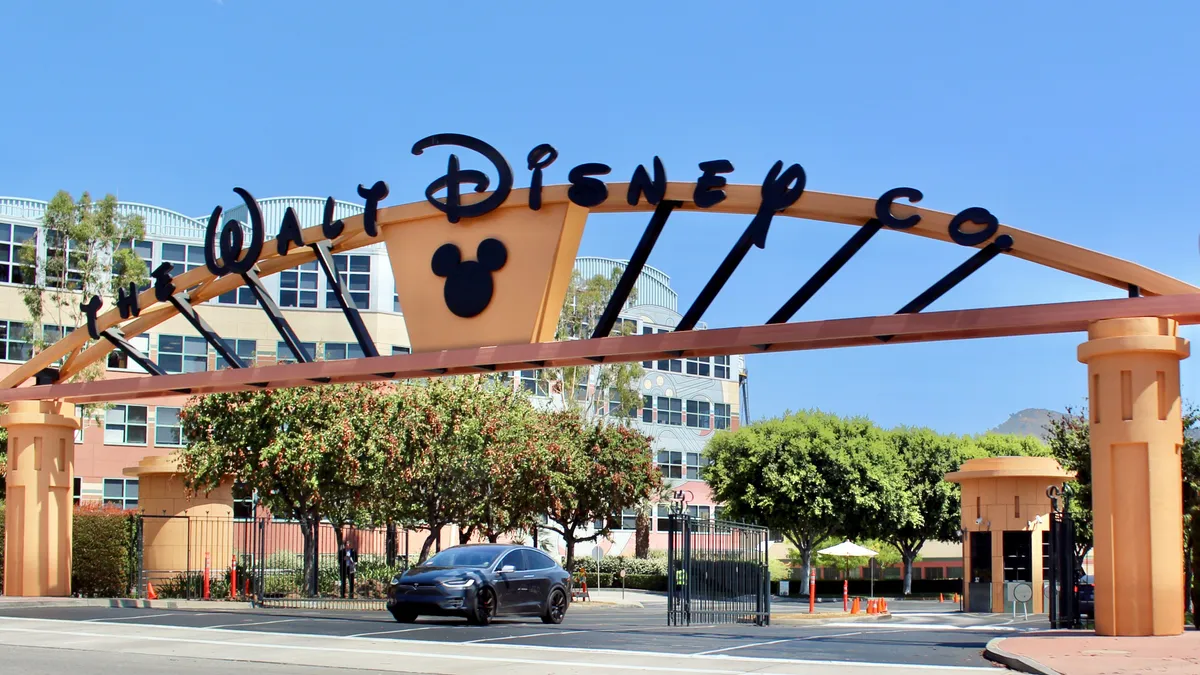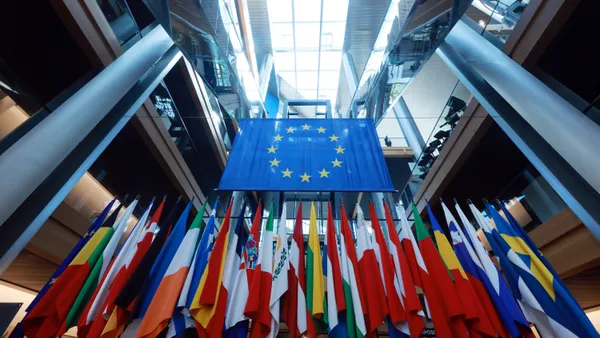Dive Brief:
- The Walt Disney Company said consumers’ perception of its position on “matters of public interest” — such as environmental, social and governance policies — often “differ widely” and pose potential risks to the company’s profits and business, according to its latest 10-K filing.
- The House of Mouse said the rising focus on ESG policies, and both U.S. and international regulations will require increased compliance costs and new reporting processes , according to the annual report filed with the Securities and Exchange Commission on Nov. 21.
- After the filing, Oklahoma’s state treasurer said Disney’s admission is proof that companies are putting ESG policies before shareholder profit and helps the case for the state law that prevents businesses who “boycott” the oil and gas industry from working with the state, according to the state’s public affairs site.
Dive Insight:
Disney currently has science-based targets for reducing its scope 1, scope 2 and scope 3 emissions, alongside goals for water stewardship, waste reduction, sustainable construction design and use of more sustainable materials in its products. The company said its “long standing commitments to sustainability and social impact” differentiate the business from other employers. However, it also said the misalignment of public preferences with its business plans poses a threat to profitability.
The media and entertainment conglomerate said the products it develops are sometimes released into different economic or social environments than expected, which affects the profitability of the company if products don’t receive the expected amount of consumer acceptance. In addition to properties like Disney Channel, Disney+, Walt Disney World and Disneyland, the company is also responsible for the Marvel brand and its films, ABC and ESPN and the sports licensing rights for multiple college and professional leagues.
Disney said its ability to meet its ESG goals and policies partially depends on working with third parties, innovations in economically feasible mitigations and solutions and the availability of suppliers to satisfy additional requirements.
Amazon recently published a procurement study finding that, though a larger amount of procurement officials are prioritizing ESG in their purchasing decisions, getting ESG and social responsibility data from suppliers has been “increasingly painstaking.”
With a large presence in Florida, including Disney World, the company has publicly opposed some of Gov. Ron DeSantis’ high-profile bills, including the controversial Parental Rights in Education bill, colloquially known as the “Don’t Say Gay” bill, which limits discussions of sexual orientation and gender identity in schools.
The battle with DeSantis has dragged out for over a year, and the latest filing only adds more fuel. Oklahoma Treasurer Todd Russ said the filing shows that some companies' ESG policies are not based on investment performance and shows the potential harm ESG policies cause.
“Disney is a great example of how putting ESG policies over investor earnings is bad for business and doesn’t belong in this arena,” Russ said in an Oklahoma Public Affairs post.
Oklahoma’s law bars the state from doing business with any company it perceives to boycott the oil and gas industry, regardless of the impact on shareholder returns. A state pensioner recently sued the state over the law, calling it unconstitutional and alleging its hurting the plan beneficiaries.












